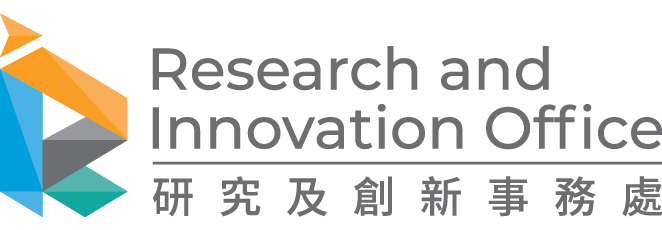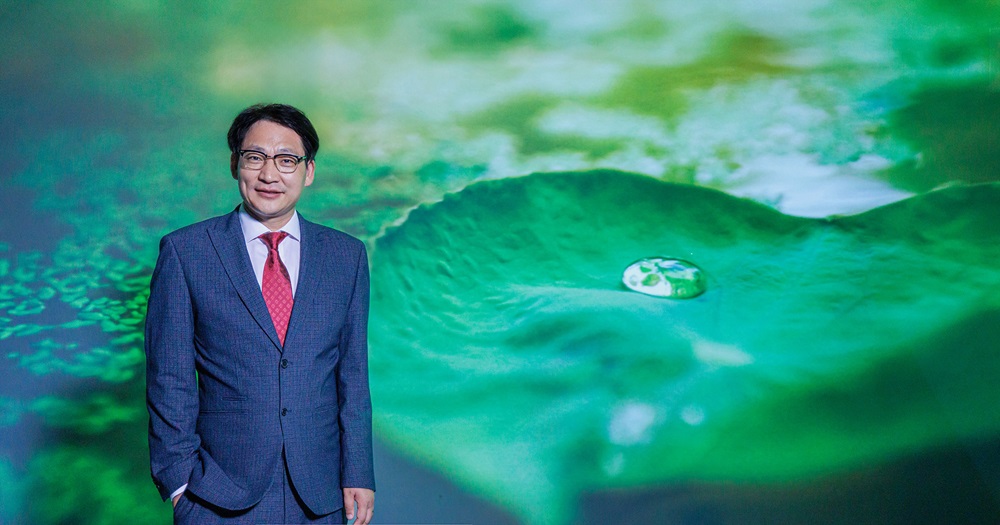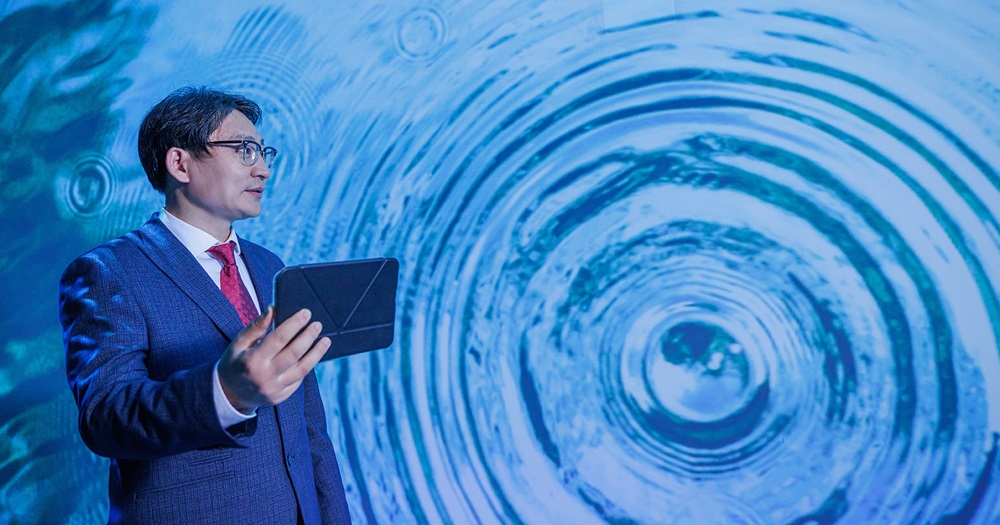Conducting research is a prolonged voyage that demands a constant source of motivation and a discerning attitude towards novel perspectives.
Having a sharp eye for new knowledge is crucial to overcoming the limits and challenges of scientific research. Through a small droplet, Prof. Zuankai WANG, Associate Vice President (Research and Innovation), Chair Professor of Nature-Inspired Engineering in Department of Mechanical Engineering at The Hong Kong Polytechnic University (PolyU), has made groundbreaking discoveries for the world. The remarkable discovery has enabled the development of new materials that reduce the contact time between drops and surfaces, leading to revolutionary advancements in scientific knowledge and practical applications. His highly cited research has been instrumental in driving these changes.
Highly cited in surface and interface science
Prof. WANG’s research has addressed a number of scientific problems that remained unsolved for centuries. Nature is a major source of research inspiration. Many biological systems coordinate different principles to process and manage information, materials and energy while utilising minimal resources with high efficiency.
“Nature never ceases to enlighten and inspire me,” said Prof. WANG. His primary motivation is to challenge the century-old conventional perceptions and explore their limits with curiosity.
“Many nature’s phenomena, ranging from the self-assembly of natural materials and their response to external stimuli to the intriguing directional flow of liquids on materials, can be explained by sophisticated surface topographical mechanisms,” he said.
Prof. WANG’s research interests focus on seeking, unravelling, and conceptualising the power of evolved surface topographical mechanisms. He then applies these insights to design nature-inspired surfaces that dynamically change their interfacial and transport properties, such as wetting, adhesion, and thermal-fluid transport, for water-energy nexus and healthcare applications.
Pioneering novel directions
According to classical studies, droplets that hit the surface of a lotus leaf surface would spread out, recoil, and then bounce up. Breaking the physical limit that governs the contact time was very challenging. The development of lotus-leaf-inspired materials by Prof. WANG and his team has led to the discovery of the intriguing “pancake bouncing” phenomenon.
The research, “Pancake bouncing on superhydrophobic surfaces,” was published in Nature Physics in 2014. The study demonstrated that the pancake bouncing results from the rectification of capillary energy stored in the penetrated liquid into an upward motion adequate to lift the drop.1
Significantly, the finding is characterised by droplets bouncing off the materials in a pancake shape with a remarkably shortest contact time, resulting in up to an 80% reduction. This outstanding achievement was also officially recognised by Guinness World Records. These insights have contributed to the development of several cutting-edge applications, such as power generation, radiation cooling, thermal cooling, anti-icing and soft robotics.
Finding an efficient method for cooling hot surfaces has been a persistent challenge within thermal engineering and materials science. Prof. WANG’s research, “Inhibiting the Leidenfrost effect above 1,000°C for sustained thermal cooling,” published in Nature in 2022, uncovered the structured thermal armour (STA). The strategy holds the potential to implement efficient water cooling at ultra-high solid temperatures, which is an uncharted property.2
The study has constructed a multitextured material capable of resisting temperatures up to approximately 1,200°C, fundamentally addressing the challenges presented by the Leidenfrost effect since 1756. This breakthrough has opened up many promising applications, particularly in aero and space engines, data centres, and nuclear power plants.
Seeing the big from the small
Prof. WANG shared the story of a groundbreaking discovery that originated from a leaf one of his students stumbled upon during a visit to Ocean Park. Although unimpressive at first glimpse, upon thorough and meticulous examination, they discovered that the phenomenon observed in the leaf could potentially challenge a two-century-old scientific understanding. This led to the publication of their novel findings in Science in 2021 under the title “Three-dimensional capillary ratchet-induced liquid directional steering.”
The team’s research uncovered that the spreading direction of liquids with different surface tensions could be tailored by designing 3D capillary ratchets that create an asymmetric and 3D spreading profile both in and out of the surface plane.3
Prof. WANG said, “I always encourage my students to be proactive, passionate and persistent. Sometimes, a small idea and experiment can be a life-changing turning point that opens up a vast world of possibilities.” With his micro-insights into the world, Prof. WANG’s research has made significant breakthroughs in various disciplines by addressing critical scientific questions and overcoming long-standing technological challenges. Prof. WANG shared his research journey and wondered, “Who would have thought that these impactful scientific achievements would emerge from a 9.6 square meter lab with just a single desk?”
Prof. WANG considers the worldwide recognition of his research as a testament to his team’s and students’ dedication.
“Achieving such recognition is not easy, but it serves as a source of motivation for us to push beyond boundaries and achieve more breakthroughs. Challenges are always there, and the path to success is full of ups and downs. However, precisely because of these difficulties, the light of reaching the destination shines even brighter.”
Like one of his translational research projects, in which one impacting droplet could instantly illuminate a light bulb4, Prof. WANG is convinced that microscopic discoveries could make a powerful impact on the macroscopic level.
Prof. WANG expressed his optimism about the future, “We are fortunate to have the opportunity to bridge the gap between fundamental research and large-scale applications. We will continue on this path by not only answering important scientific questions but also addressing grand challenges that lie ahead.”
Research Interests: Nature-inspired Surfaces and Materials, Additive Manufacturing, Energy Harvesting, Fluid Dynamics, Soft Matter
Highly Cited Researcher: 2022 (Clarivate Analytics)
Selected Highly Cited Publications:
- Z. Wang, Y. Liu, L. Moevius, X. Xu, et.al., Pancake bouncing on superhydrophobic surfaces, Nature Physics, vol 10, Jul 2014
- Z. Wang, M. Jiang, Y. Wang, F. Liu, et.al., Inhibiting the Leidenfrost effect above 1,000 °C for sustained thermal cooling, Nature, vol 601, Jan 2022
- Z. Wang, S. Feng, P. Zhu, H. Zheng, et.al., Three-dimensional capillary ratchet-induced liquid directional steering, Science, vol 373, Sep 2021
- Z. Wang, W. Xu, H. Zheng, Y. Liu et.al., A droplet-based electricity generator with high instantaneous power density, Nature, vol 578, Feb 2020
Sometimes, a small idea and experiment can be a life-changing turning point that opens up a vast world of possibilities.
Prof. Zuankai WANG
Associate Vice President (Research and Innovation) of PolyU, Chair Professor of Nature-Inspired Engineering in Department of Mechanical Engineering




